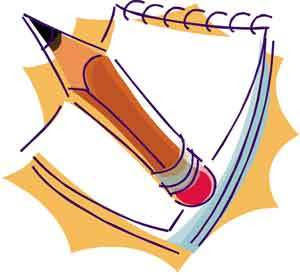Friday, October 9, 2009
Farm business management resources
You can search our Online Public Access Catalog to locate print resources: such as books or magazines.
EBSCOhost Databases and more specifically Academic Search Premier.
UWIC electronic resources. For more information on usernames and passwords consult the Registrar.
These are some web sites we selected for you very carefully.
International Farm Management Association
U.S. Small Business Administration
Elite Farmer
NCDA Market News
AgriBiz
Ag Decision Maker (AgDM)
Tuesday, May 5, 2009
Seminar Announcement
Therefore we decided to hold a two hour seminar taking place at the Library Amphitheater on Tuesday May 12th, 2009 from 12:30 to 14:00.
See you there!
Monday, April 13, 2009
Interesting articles
Cover feature: Soil matters p.24
It's a gas: anaerobic digestion: a renewable energy option? p. 29
Unheated tomato production: advice on growing this important glasshouse crop p.40
Organic farming is published by the Soil Association (UK). Check here for more details on the Association.
Tuesday, April 7, 2009
Grammar Sources continued...

Adjectives & adverbs
Using adverbs
The
Theory on adjectives from the writing center of
Phrasal Verbs & idiomatic Expressions
Theory mainly and some exercises
More phrasal verb exercises
Wednesday, February 18, 2009
Developing a Search Strategy
* You need to know what you are looking for, so read you topic carefully, identify and underline the most important keywords or phrases.
* Find definitions of unknown terms. Think of synonyms; include singular and plural terms; spelling variations and broader terms.
* Think what type of materials you need: Books, Journals or electronic sources.
* Decide where to begin your search. There are two options: you can use the Library resources and (or) the Internet.
At the Library:
* Locate items using the Library's OPAC (Online Public Access Catalog). There you can find library materials, such as books, contained in a collection in the Library.
* Library print subscriptions of journals and magazines.
* Databases available at you Library. EBSCO is an online reference system accessible via the Internet, which offers a variety of databases from leading information providers.
* Databases available through UWIC libraries. They hold subscriptions to an important number of electronic databases.
On the Internet
You need to be careful when you search on the Internet and check if the information is credible and relevant to the topic. On the Internet you can locate all sorts of information in various forms and through various paths. However, keep in mind the following:
* Thus far, Wikipedia is not considered a credible or appropriate source in the academic environment. It may be used for initila information about a subject, but it is not accepted as source used in papers, projects, or presentations.
* Blogs are not considered appropriate as an appropriate source as well
* Use search engines in a smart way. Use features such as Google Scholar, Google Book, and remember to use the Advanced search options, because you can limit your retrieved results to specific file types for example.
* You can locare useful information on conference web sites, web pages of professional Associations, Organizations or Institutions as well as free online magazines.
Thursday, January 29, 2009
Thursday, January 22, 2009
Parenthetical citations: electronic
Using parts of texts of electronic resources in your assigments posses certain particularities. First of all web pages are not numbered which means that when you have an online article for example you can't write in the parenthetical citation a page number. However, you can use paragraph numbers.
For example, you have an article of 15 paragraphs written by John Wilson . The sentence(s) of the article you want to copy in your assignment is on paragraph 6. The parenthetical citation would be as follows: (Wilson par. 6). As in print parenthetical citations you write the surname of the author, you write the abbreviation of the word paragraph which is par. and then the corresponding number.
Another issue you are most likely to encounter is to find an article without an author. In this case, and if you believe that the article is suitable for your assignment, you write in the parenthetical citation the title of the article followed by the corresponding paragraph number. If the title of the article is too long you can use the first words of the title.
For example you have an article under the title Agribusiness and you used a sentence from the second paragraph. Your in-text citation will be (Agribusiness, par. 2)
Sunday, January 18, 2009
New acquisitions: selections

Van Horne, James C. and John M. Wachowicz, Jr. Fundamentals of Financial Management. 13th ed. Harlow, Essex: Pearson Education, 2009.
This a required reading for your Agricultural Finance class.
Copies are available at the Reserve collection. Call number RES 658.15 Van
Check this link for more information about this title.
Spears, Deanne M. Improving Reading Skills: Contemporary Reading for College Students. 5th ed. Boston: McGraw-Hill, 2003.
This title belongs with the Recommended readings for the class
Intermediate Reading /Vocabulary 1.
This title will be available for loan at the Circulating collection. Call number 428.64 Mil
Check this link for additional information.
 Murphy, Raymond. Essential Grammar in Use. Cambridge: Cambridge University Press, 2004.
Murphy, Raymond. Essential Grammar in Use. Cambridge: Cambridge University Press, 2004.This a required reading for your Intermediate reading / Vocabulary I classes.
Copies are available at the Reserve collection.
Check this link for any additional information regarding this title.
Thursday, January 15, 2009
Interesting articles
There is an interesting article on page 36 under the title " Pointers for Profitability: what are the key characteristics of a profitable organic farmer or grower".
Also, check the Successful Farming magazine December 2008 issue on how creativity in your agricultural business can save you money. You can also start reading the article when you press here
Tuesday, January 13, 2009
Parenthetical citations: print sources
When you are writing a research paper “you must indicate to your readers not only what works you used in writing the paper but also exactly what you derived from each source and exactly where in the work you found the material” (Gibaldi 204). So wherever you use in your assignments another person’s words or ideas you must provide the appropriate information using parenthetical or in-text citations. Parenthetical citations lead your readers to the Works Cited list which is located at the end of your document.
Print Sources
In print resources like books, magazines, or journals the author (s) last name (s) and the specific page number (s) identify your source.
For example we have the book
Farkas, Meredith. Social Software in Libraries. Medford, NJ: Information Today, 2007.
and you selected to use a sentence from this book in your assignment and it is from page 179.
There are two ways you can write the quotation.
In the first way you open a quote, write down the sentence, close the quote, leave one space and in the parenthesis you write the surname of the author, again leave one space, write down the page number and close the parenthesis.
“We are becoming an increasingly mobile society, where people are able to access the web and communicate virtually no matter where they are” (Farkas 179).
The second way to cite a direct quote is to include the authors name in the sentence. For example:
According to Farkas “we are becoming an increasingly mobile society, where people are able to access the web and communicate virtually no matter where they are” (179).
In this case and since the name of the author is already mentioned in the text you just write in the parenthesis the page number.
Note: if you have a print source with two authors’ you use both authors, for example (Jacobson and Waugh 210).
Works cited
Gibaldi, Joseph. MLA Handbook for Writers of Research Papers. 5th ed. New York: The Modern Language Association of America, 1999.
Thursday, January 8, 2009
Citations: Electronic sources
Basic format:
Name of Site. Date of Posting/Revision. Name of institution/organization affiliated with the site (sometimes found in copyright statements). Date you accessed the site [electronic address].
For example:
Felluga, Dino. Guide to Literary and Critical Theory. 28 Nov. 2003. Purdue University. 10 November 2008 http://www.cla.purdue.edu/english/theory.
A page on a web site
Wikipedia example
For an individual page on a Web site, list the author, followed by the information covered above for entire Web sites. Make sure the URL points to the exact page you are referring to, or the entry or home page for a collection of pages you're referring to
"Caret." Wikipedia: The Free Encyclopedia. 28 April 2006. 10 May 2006 http://en.wikipedia.org/w/index.php?title=Caret&oldid=157510440
An Article in a Web Magazine
Basic Format
Author(s). "Title of Article." Title of Online Publication. Date of Publication. Date of Access
Example:
Bernstein, Mark. "10 Tips on Writing The Living Web." A List Apart: For People Who Make Websites. 16 August 2002. 4 May 2006 http://alistapart.com/articles/writeliving.
For more details on citing electronic sources visit the Owl at Purdue web site



